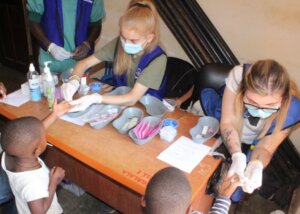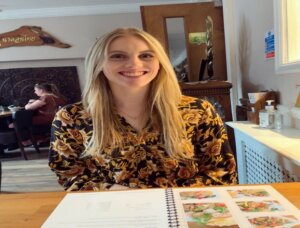As I sit at my laptop, I reflect on the journey I have been on and the one I travel now. At 46 I do feel content and that contentment leads me to feel successful. Yet the need to learn and develop does not diminish. After my undergrad degree I knew, I would want to continue. But why? Do I really need the stress of deadlines, the pain of procrastination, the search for motivation to work and the agony of waiting for results which can make you justify whether you are good enough? The answer of course is yes! The biggest learning curve for me within academia is the impact developing knowledge has had on my practice. The deeper you dive the better you become as you know the importance of analysis, critical thinking, and the confidence to challenge things you feel are not right, which in turn makes a difference to the lives of the children and young people I work with.
Of course, I was motivated to enrol on the MA in Childhood and Youth Studies at University of Sunderland, but I don’t mind admitting I was worried. Worried I would not be able to up my game so to speak. It is a big jump from under grad to post grad. Imposter syndrome overshadows every one of my thoughts and doubt creeps in with every reading task, discussion, and assessment. My voice however feels a tiny bit stronger with each session I attend and with each topic we examine and each task we engage with. The modules on this course allow freedom and choice. Whilst I love freedom to think outside of the box within my practice, I surprised myself at how I struggled to transition from following a prescribed expectation of requirements. I had to rethink my motivation for the task and instead consider what moves me not what motivates me.
The first module required a presentation, Viva and Rationale on an activity delivered to children and or young people addressing theoretical approaches. Again, choice and freedom in what and how I delivered it. I chose to focus on how I unpick the voice of the child. My background in early years embeds play at the core of what I do and ensures its use in gaining the voice of the child within Early Help services. I simply presented what I do, how I do it and why including the lived experience of why this is important to me.
I rely on objects and things some would not consider tools such as post it notes, Russian Dolls, pebbles, and Spotify codes, along with more conventional toys like puppets, figures etc. I have always been distracted by objects, like a magpie something will catch my eye and before I know it, I will find a purpose or a function for it and not always what its original purpose should be. Bits and pieces, loose parts, junk even. These ‘things’ tend not to matter to grown-ups, but I know how they matter so much when you see them through the lens of a child. I have been fortunate to watch the effect these things can have on children but have not until now fully considered how things ‘affect’. During this assessment this realisation hit me quite hard. The resources, the tools I use are three-dimensional, open-ended objects which can if used correctly truly engage children and young people and shows them that they matter. Through this I believe I honour their voice.
My imposter syndrome will not diminish. I know that but with the creative teaching delivery of the modules is ensuring I have every chance to push beyond what I believe I know and explore what I do not know which will in turn make my voice stronger and louder. Admittedly it moves me every time a child or young person shares their thoughts and feelings, and I am privileged to be a part of this process. It makes such a difference to be able to connect what I do to how it should be done and the theoretical processes behind it. That is the learning for me that is being facilitated and nurtured on this post grad course.
You can get more information about the MA Childhood and Youth Studies here: https://www.sunderland.ac.uk/study/social-sciences/postgraduate-childhood-youth-studies/




